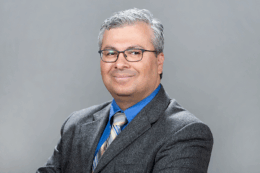Posts Tagged ‘research’
Herr wins Weill Neurohub Investigator Award
A research project on “the protein code of brain aging: from molecules to mechanisms,” by Professor Amy Herr has been selected for a Weill Neurohub Investigator Award. The Investigators program funds top faculty to form cross-campus, interdisciplinary teams to explore, create, and test bold new concepts and technologies.
Read MoreArkin Lab uses the microbiome to combat lung pathogens
Researchers from Adam Arkin’s lab, funded by a grant from the Dept. of Health and Human Services, have engineered colonies of good bacteria that can be inhaled to crowd out pathogenic bacteria and combat lung infections without antibiotics.
Read MoreAlice Tang named to 30 Under 30
Congratulations to bioengineering MD/PhD candidate Alice Tang, named to the 2026 Forbes 30 Under 30! Tang has pioneered methods to analyze millions of health records using AI, uncovering revelations about complex diseases like Alzheimer’s.
Read MoreNature provides the answers
An in-depth look at research by Professor Phil Messersmith, who draws on biology to develop cutting-edge materials for medicine. His lab creates adhesives and therapies designed to work with the human body, offering new ways to repair tissues, heal wounds and treat disease.
Read MoreResearchers pioneer greener way to extract rare earth elements
Professor Seung-Wuk Lee has pioneered a biomining technique that could be a clean and more sustainable way to mine the rare earth elements essential to modern technology. His lab genetically engineered a harmless virus to act like a “smart sponge” that grabs rare earth metals from water, and, with a gentle change in temperature and…
Read MoreFour BioE Faculty Named 2025 Highly Cited Researchers
Professors Paul Adams, Adam Arkin, Patrick Hsu, and Jay Keasling have been recognized in the “2025 Highly Cited Researchers” list, meaning their work ranks in the top 1% of citations for their field and publication year in Clarivate’s Web of Science citation index
Read MoreHeart-on-a-chip may lead to new treatments for heart failure
A team led by Professors Kevin Healy and Niren Murthy have developed a microfluidic heart-on-a-chip, with which they were able to discover a lipid nanoparticle that could penetrate the dense heart muscle and efficiently deliver its cargo of therapeutic mRNA into heart muscle cells. This new drug delivery method and testing platform may pave the way to new cardiac treatments.
Read MoreTaner Sen and Colleagues Sequence Complex Oat Pangenome
Adjunct Professor Taner Sen and his colleagues at the USDA and beyond have assembled and annotated the genomes of 33 wild and domesticated oat lines, along with an atlas of gene expression across 23 of these lines, which will enable future efforts to produce even more hardy and productive strains of the popular grain.
Read MoreUC Berkeley scientists uncover neural mechanisms behind long-term memory
Researchers from Professor Michael Yartsev’s lab used wireless recording devices to track neural activity in Egyptian fruit bats, revealing new clues to how our long-term memories are formed.
Read More









